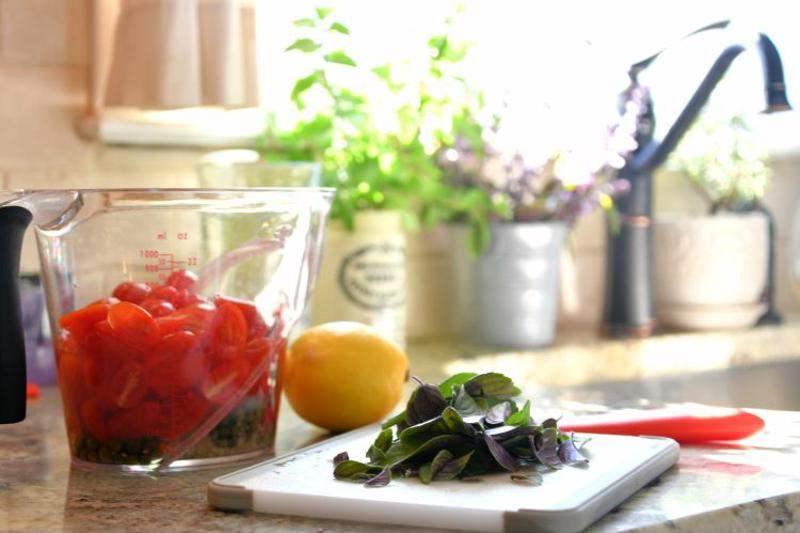One of the most vital lessons you can learn while enrolled in an Austin culinary arts school is the importance of wisely managing your time. When you’re working in a professional kitchen, demands often come at you fast. There are constantly new orders coming in while entrees finish up in the oven and appetizers need to be plated.
Whether you work at a restaurant, cafeteria or catering service, you benefit from preparing while you can. Successful chefs stay organized and plan ahead so they’re ready when the kitchen turns into a hive of intense activity. Here are some strategies for making the best use of slower periods and getting ready for the busiest hours:
Put everything in its place
“Preparing your station is crucial in any professional kitchen.”
Not every chef has a deep vocabulary of French culinary terms, but most are very familiar with the phrase “mise en place,” meaning simply “everything in its place.” Preparing your station is crucial in any professional kitchen. That’s because careful attention to mise en place can make the difference between turning out amazing dishes with speed and efficiency and getting bogged down in chopping up the key ingredients that someone forgot would be needed later.
Getting a station ready starts with considering what dishes you can expect to prepare for a particular shift and taking into account all the elements go into those items. As the Reluctant Gourmet explained, vegetables should be cut in the right size and style, and all meats should be deboned and separated into pieces. Mise en place is most important for dishes that require you to add numerous ingredients quickly, such as a stir fry, so set priorities.
Lay out all the utensils, pots, pans and bowls you’re likely to need. Heat up pans in advance to make cooking faster. When setting up your mise en place, everything you can do ahead of time will benefit you and the kitchen as a whole later on.
Clean your station and tools
Along with having all your supplies at the ready, it’s a good idea to keep your station as tidy as possible. Letting dirty dishes pile up leads to getting disorganized, and that means making mistakes. Cooking professionals should keep towels at the ready and wipe down their stations regularly.
A marker is another tool you should always have with you, according to Food 52. That way, you can quickly pack up any leftover ingredients, clearly label them and store them until they’re needed. While things are slow, make sure you have plenty of clean pots and cutting boards waiting for when you need fresh ones right away.
 The more you can get done during slow times, the more efficient you’ll be later.
The more you can get done during slow times, the more efficient you’ll be later.Ask questions
At dinner time, when a kitchen is producing dishes for a full restaurant, there’s little time for conversation. However, everyone working on the line needs to know just what’s expected of them and if there are any special considerations that go into preparing that day’s dishes. That’s why cooking professionals make sure to address any questions before their establishment gets packed with hungry patrons. Relatively quiet times are great opportunities for newer cooks to learn from their more experienced peers.
Take care of yourself
A lot of hard work and speedy movement goes into crafting amazing dishes on a daily basis. Chefs can get caught up in the excitement and forget to think about their own well-being. While the kitchen is calm, take some time to collect yourself and make sure you’re staying healthy. Everyone, even a busy chef, needs to drink plenty of water and get enough to eat.
What you do when a restaurant is empty can matter just as much as your technique when it’s bustling. Culinary academy will teach you all the skills you need to build a career as a cooking professional.


